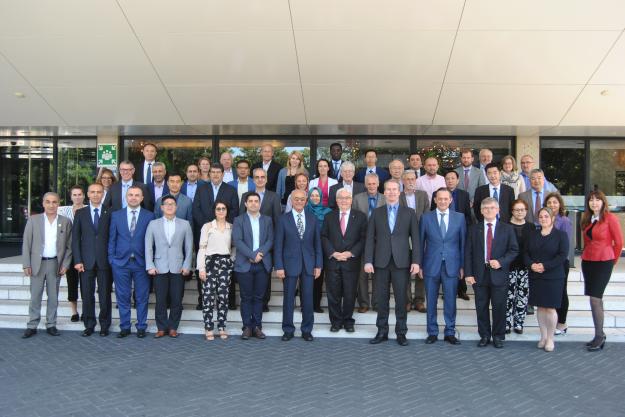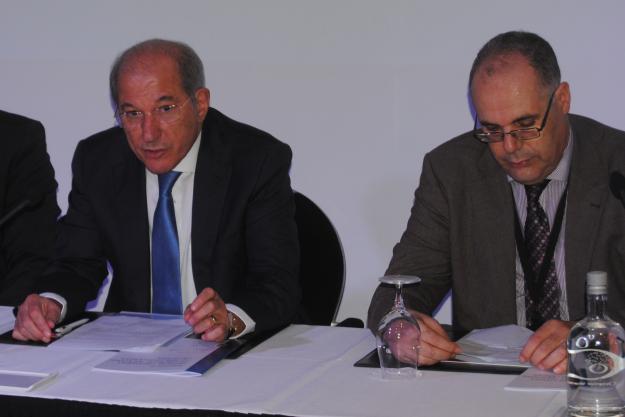
Attendees at the International Symposium on Medical Treatment of Chemical Warfare Victims
THE HAGUE, Netherlands – 2 July 2018 – An international Symposium on Medical Treatment of Chemical Warfare Victims was convened by the Organisation for the Prohibition of Chemical Weapons (OPCW) from 28 to 29 June in The Hague.
More than 50 scientists, clinicians, experts, academia, and civil society representatives from around the world attended the Symposium, which focused on various challenges associated with providing medical assistance for victims of chemical warfare, with a special focus on long-term health effects and the treatment necessary for these conditions.
During his opening address, OPCW Director-General, Ambassador Ahmet Üzümcü, encouraged the assembled experts to “seek concrete outcomes that will further ameliorate the ongoing medical care of victims of chemical weapons”.

OPCW Director-General H.E. Ahmet Üzümcü with Hamza Khelif, Director of the International Cooperation and Assistance Division
The Symposium provided an expert forum for experience-sharing and exchange of ideas that should result in identifying priorities for victim assistance projects and future scientific research.
The participants also discussed the latest findings on long-term health effects of exposure to chemical warfare agents, as well as challenges and gaps in treatment provision.
A Symposium declaration was prepared by the participants, which elaborated recommendations on how the Technical Secretariat and the International Support Network for Victims of Chemical Weapons could most positively provide support for victims of chemical weapons. The declaration also contains recommendations for other relevant international organisations and the medical community at large regarding medical assistance for victims of chemical weapons, as well as research and scientific collaboration in this field.
This draft symposium declaration was distributed during the final session and will be finalised for submission to the OPCW Technical Secretariat over the coming days. This declaration will be made available on the OPCW website under the Symposium banner.
Background
This event was organised by the Technical Secretariat under the auspices of the International Support Network for Victims of Chemical Weapons, established pursuant to a decision of the Conference of the States Parties (C-16/DEC.13, dated 2 December 2011).
As the implementing body for the Chemical Weapons Convention, the OPCW oversees the global endeavour to permanently and verifiably eliminate chemical weapons. Since the Convention’s entry into force in 1997 – and with its 193 States Parties – it is the most successful disarmament treaty eliminating an entire class of weapons of mass destruction.
Over 96% of all chemical weapon stockpiles declared by possessor States have been destroyed under OPCW verification. For its extensive efforts in eliminating chemical weapons, the OPCW received the 2013 Nobel Peace Prize.
